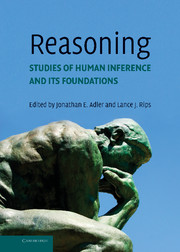50 - The Truth in Relativism
Published online by Cambridge University Press: 05 June 2012
Summary
This chapter tries to place certain issues in the discussion of relativism, rather than to deal with any one of them thoroughly. It is concerned with any kind of relativism, in the sense that the questions raised are ones that should be asked with regard to relativistic views in any area, whether it be the world-views of different cultures, shifts in scientific paradigms, or differences of ethical outlook. A machinery is introduced which is intended to apply quite generally. But the only area in which I want to claim that there is truth in relativism is the area of ethical relativism. This does not mean that I here try to argue against its truth in any other area, nor do I try to pursue any of the numerous issues involved in delimiting the ethical from other areas.
Conditions of the Problem
(a) There have to be two or more systems of belief (Ss) which are to some extent self-contained. No very heavy weight is put on the propositional implications of the term ‘belief’, nor, still less, is it implied that all relevant differences between such systems (let ‘S1’, ‘S2’, stand for examples from now on) can be adequately expressed in propositional differences: the extent to which this is so will differ with different sorts of examples. Any application of this structure will involve some degree of idealisation, with regard to the coherence and homogeneity of an S.
Information
- Type
- Chapter
- Information
- ReasoningStudies of Human Inference and its Foundations, pp. 995 - 1001Publisher: Cambridge University PressPrint publication year: 2008
